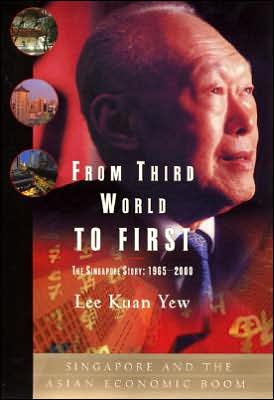Patterns of Culture
"Unique and important . . . Patterns of Culture is a signpost on the road to a freer and more tolerant life."—New York Times\ A remarkable introduction to cultural studies, Patterns of Culture is an eloquent declaration of the role of culture in shaping human life. In this fascinating work, the renowned anthropologist Ruth Benedict compares three societies—the Zuni of the southwestern United States, the Kwakiutl of western Canada, and the Dobuans of Melanesia—and demonstrates the diversity of...
Search in google:
"Unique and important . . . Patterns of Culture is a signpost on the road to a freer and more tolerant life." -- New York TimesA remarkable introduction to cultural studies, Patterns of Culture is an eloquent declaration of the role of culture in shaping human life. In this fascinating work, the renowned anthropologist Ruth Benedict compares three societies -- the Zuni of the southwestern United States, the Kwakiutl of western Canada, and the Dobuans of Melanesia -- and demonstrates the diversity of behaviors in them. Benedict's groundbreaking study shows that a unique configuration of traits defines each human culture and she examines the relationship between culture and the individual. Featuring prefatory remarks by Franz Boas, Margaret Mead, and Louise Lamphere, this provocative work ultimately explores what it means to be human."That today the modern world is on such easy terms with the concept of culture . . . is in very great part due to this book." -- Margaret Mead"Benedict's Patterns of Culture is a foundational text in teaching us the value of diversity. Her hope for the future still has resonance in the twenty-first century: that recognition of cultural relativity will create an appreciation for 'the coexisting and equally valid patterns of life which mankind has created for itself from the raw materials of existence.'" -- from the new foreword by Louise Lamphere, past president of the American Anthrolopological AssociationRuth Benedict (1887-1948) was one of the most eminent anthropologists of the twentieth century. Her profoundly influential books Patterns of Culture and The Chrysanthemum and the Sword: Patterns of Japanese Culture were bestsellers when they were first published, and they have remained indispensable works for the study of culture in the many decades since.
ForewordPrefaceAcknowledgmentsIntroductionIThe Science of Custom1Custom and behaviourThe child's inheritanceOur false perspectiveConfusion of local custom with 'Human Nature'Our blindness to other culturesRace-prejudiceMan moulded by custom, not instinct'Racial purity' a delusionReason for studying primitive peoplesIIThe Diversity of Cultures21The cup of lifeThe necessity for selectionAdolescence and puberty as treated in different societiesPeoples who never heard of warMarriage customsInterweaving of cultural traitsGuardian spirits and visionsMarriage and the ChurchThese associations social, not biologically inevitableIIIThe Integration of Culture45All standards of behaviour relativePatterning of cultureWeakness of most anthropological workThe view of the wholeSpengler's 'Decline of the West'Faustian and Apollonian manWestern civilization too intricate for studyA detour via primitive tribesIVThe Pueblos of New Mexico57An unspoiled communityZuni ceremonialPriests and masked godsMedicine societiesA strongly socialized culture'The middle road'Carrying farther the Greek idealContrasting customs of the Plains IndiansDionysian frenzies and visionsDrugs and alcoholThe Zuni's distrust of excessScorn for power and violenceMarriage, death, and mourningFertility ceremoniesSex symbolism'Man's oneness with the universe'The typical Apollonian civilizationVDobu130Where ill-will and treachery are virtuesTraditional hostilityTrapping the bridegroomThe humiliating position of the husbandFierce exclusiveness of ownershipReliance on magicRitual of the gardenDisease-charms and sorcerersPassion for commerceWabuwabu, a sharp trade practiceDeathMutual recriminations among survivorsLaughter excludedPruderyA cutthroat struggleVIThe Northwest Coast of America173A sea-coast civilizationThe Kwakiutl of Vancouver IslandTypical DionysiansCannibal SocietyAt the opposite pole from the PueblosThe economic contestA parody on our own societySelf-glorificationShaming one's guestsPotlatch exchangesHeights of bravadoInvesting in a bridePrerogatives through marriage, murder, and religionShamanismFear of ridiculeDeath, the paramount affrontThe gamut of emotionsVIIThe Nature of Society223Integration and assimilationConflict of inharmonious elementsOur own complex societyThe organism v. the individualThe cultural v. the biological interpretationApplying the lesson of primitive tribesNo fixed 'types'Significance of diffusion and cultural configurationSocial valuesNeed for self-appraisalVIIIThe Individual and the Pattern of Culture251Society and individual not antagonistic but interdependentReady adaptation to a patternReactions to frustrationStriking cases of maladjustmentAcceptance of homosexualsTrance and catalepsy as means to authorityThe place of the 'misfit' in societyPossibilities of toleranceExtreme representatives of a cultural type: Puritan divines and successful modern egoistsSocial relativity a doctrine of hope, not despairReferences279Index287








